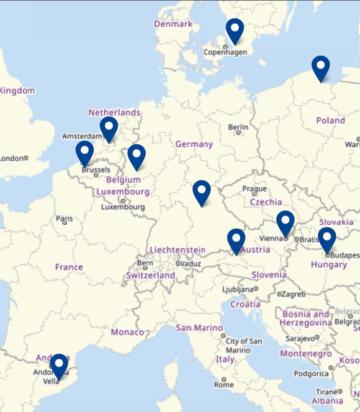Help us make the FRA website better for you!
Take part in a one-to-one session and help us improve the FRA website. It will take about 30 minutes of your time.

EU Charter of Fundamental Rights
Preambula
Eiropas tautas, veidojot arvien ciešāku savstarpēju sadarbību, ir nolēmušas veidot mierpilnu nākotni, kuras pamatā ir kopējas vērtības. Apzinoties savu garīgo un tikumisko mantojumu, Savienība balstās uz nedalāmām, universālām vērtībām – cilvēka cieņu, brīvību, vienlīdzību un solidaritāti; tās pamatā ir demokrātijas un tiesiskuma principi. Vislielāko uzmanību Savienība pievērš indivīdam, iedibinot Savienības pilsonību un izveidojot brīvības, drošības un tiesiskuma telpu.
Savienība veicina šo kopējo vērtību saglabāšanu un attīstību, vienlaikus respektējot Eiropas tautu kultūru un tradīciju dažādību, kā arī dalībvalstu nacionālo identitāti un to valsts iestāžu organizāciju valsts, reģionālā un vietējā līmenī; tā tiecas veicināt līdzsvarotu un stabilu attīstību un nodrošina personu brīvu pārvietošanos, preču, pakalpojumu un kapitāla brīvu apriti un brīvību veikt uzņēmējdarbību.
Šajā nolūkā, ņemot vērā pārmaiņas sabiedrībā, sociālo attīstību, kā arī zinātniskos un tehnoloģiskos sasniegumus, ir nepieciešams stiprināt pamattiesību aizsardzību, šo tiesību nozīmīgumu īpaši uzsverot Hartā.
Šajā Hartā, ievērojot Savienības kompetences un uzdevumus, kā arī subsidiaritātes principu, no jauna ir apstiprinātas tiesības, kuru pamatā ir dalībvalstu konstitucionālās tradīcijas un starptautiskās saistības, Eiropas Cilvēktiesību un pamatbrīvību aizsardzības konvencija, Savienības un Eiropas Padomes pieņemtās Sociālās hartas, kā arī Eiropas Savienības Tiesas un Eiropas Cilvēktiesību tiesas judikatūra. Šajā sakarā Savienības un dalībvalstu tiesas interpretē Hartu, ievērojot paskaidrojumus, kas sagatavoti pēc šo Hartu izstrādājušā Konventa prezidija ierosinājuma un kurus ir papildinājis Eiropas Konventa prezidijs.
Šo tiesību īstenošana ir saistīta ar atbildību un pienākumiem pret citām personām, visu sabiedrību un nākamajām paaudzēm.
Tāpēc Savienība atzīst turpmāk tekstā izklāstītās tiesības, brīvības un principus.



